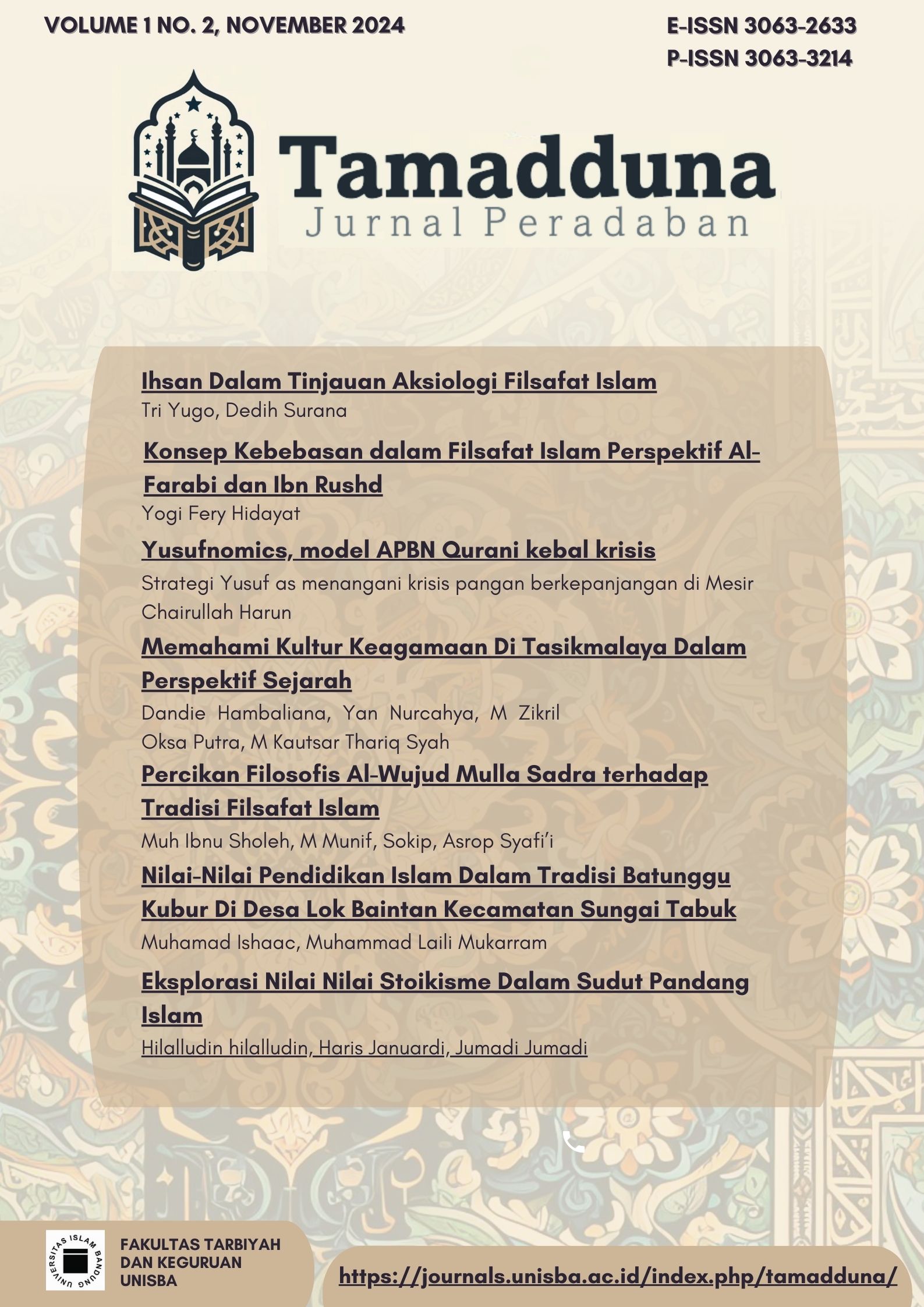The Concept of Freedom in Islamic Philosophy from the Perspective of Al-Farabi and Ibn Rushd
DOI:
https://doi.org/10.29313/tamadduna.v1i2.4859Keywords:
freedom, Islamic philosophy, al-Farabi, Ibn RushdAbstract
This study aims to explore the concept of freedom in the thought of al-Farabi and Ibn Rushd, two great figures in the history of Islamic philosophy. The method used in this research is literature study by analyzing the works of al-Farabi and Ibn Rushd related to the concept of freedom. This study also compares and contrasts the views of the two philosophers on the concept of freedom. The results of the study show that al-Farabi and Ibn Rushd have different perspectives on the concept of freedom. For al-Farabi, freedom is a concept related to individual and overall societal happiness. While for Ibn Rushd, freedom is related to the ability of individuals to think and act freely without limitations. This study also found similarities in the views of al-Farabi and Ibn Rushd on the concept of freedom. Furthermore, this research shows that the concept of freedom in the thought of both philosophers can be applied in the context of modern society to achieve justice and prosperity.
References
Al-Farabi, A. N. (1998). Al-Siyasa al-Madaniyya. Dar al-Machreq.
Al-Farabi, A. N. (2004). Al-Madina al-Fadila. Dar al-Qalam.
Butterworth, C. (1981). The Political Aspect of Islamic Philosophy: Essays in Honor of Muhsin S. Mahdi. Islamic Publications International.
Butterworth, C. E. (2001). Al-Farabi, The Political Writings: Selected Aphorisms and Other Texts. Cornell University Press.
Cook, M. (2000). Commanding Right and Forbidding Wrong in Islamic Thought. Cambridge University Press.
Fakhry, M. (2001). Averroes: His Life, Work, and Influence. Oneworld Publications.
Harahap, N. S. (2021). Konsep Demokrasi dalam Filsafat Politik Ibn Rusyd Terhadap Teori Plato. UIN Syarif Hidayatullah Jakarta.
Ibn Rushd. (2001). The Decisive Treatise. Brigham Young University Press.
Ibnu Rushd. (2002). The Incoherence of the Incoherence . Brigham Young University Press.
Kumar, R. (2014). Research Methodology: A Step-by-Step Guide for Beginners. SAGE Publications Ltd.
Leaman, O. (2009). An Introduction to Medieval Islamic Philosophy. Cambridge University Press.
Lerner, R. (1974). Averroes on Plato’s “Republic.” Cornell University Press.
Mahdi, M. (2001a). Al-Farabi and the Foundation of Islamic Political Philosophy. University of Chicago Press.
Mahdi, M. (2001b). Al-Farabi’s Philosophy of Plato and Aristotle. Johns Hopkins University Press.
Mill, J. S. (1859). On Liberty. Longman, Roberts & Green.
Muthhar, Moh. A. (2016). Masyarakat Dan Negara Menurut Al-Farabi Relevansi Dengan Pemikiran Politik Modern. UIN Syarif Hidayatullah Jakarta.
Netton, I. R. (1999). Al-Farabi and His School. Routledge.











